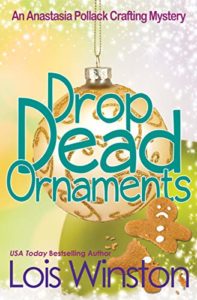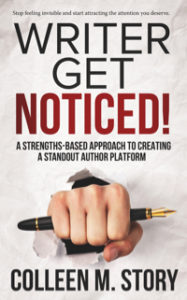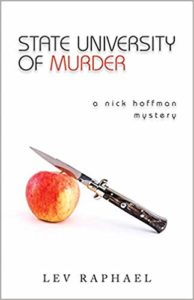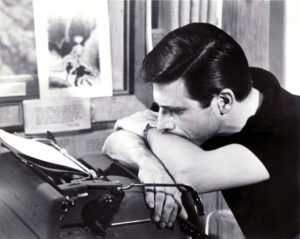Writing is lonely and sometimes it seems that the only people who truly understand what that feels like are other writers, but the bond can be deceptive. Just because someone else writes doesn’t mean that they’re truly simpatico. Be careful who you choose to bring into your writing world and make a friend. You might end up regretting that choice.
–Avoid writers who are obsessed with the ups and downs of the publishing world. Knowing what the trends are is important, but it shouldn’t keep you from writing what you want to write, or distract you from your own work.
–If you notice that a writer consistently belittles their own success, stay away. There’s nothing wrong with healthy enjoyment of doing well. But some writers are never happy, and that undertow of negativity might eventually affect you.
–Be wary of writers who dismiss or even ignore how you feel about career setbacks or disappointments. If they can’t empathize with you when you’re down, is that really a person you want to know long-term?
–Not everyone feels the need to write every day, and writer friends who obsess about their daily progress via word counts or page counts can become annoying, even if you’re not feeling stuck.
–Publishing is uncertain, but avoid writers who are paranoid about things that will never happen to them, like being dropped by their publishers when they’re successful. You’ve got your own real worries to deal with.
–Sometimes other writers will let their contempt show about the genre you write in, if it’s not one that they truly admire. Don’t hang around anyone who actually looks down at your work while pretending to be a buddy.
–If you’ve got a writer friend who keeps sending you their great reviews, interviews, etc., ask yourself why? Does he or she feel the need to impress you? What for? Isn’t it enough to just share the news itself?
–Beware of writers who tell you what you need or what your work is missing. One friend reported to me that another author told her she didn’t have “enough angst” to be a writer. Blanket assessments like that are pointless, dumb, and insulting.
–We’re all busy (if things are going well), but writers who keep complaining that they’re over-committed yet won’t stop doing events like readings, signings, or conference panels that they claim frustrate them obviously have a deep need to complain.
In the end, being connected to other writers is important, but it’s just as important to have friends who aren’t writers. That’ll help you remember that the world is a place where not everyone is working with words 24/7. It’ll keep you sane. Well, saner….
Lev Raphael is the author of Writer’s Block is Bunk! and two dozen other books in many genres. He offers creative writing workshops, editing and mentoring online at writewithoutorders.com.








